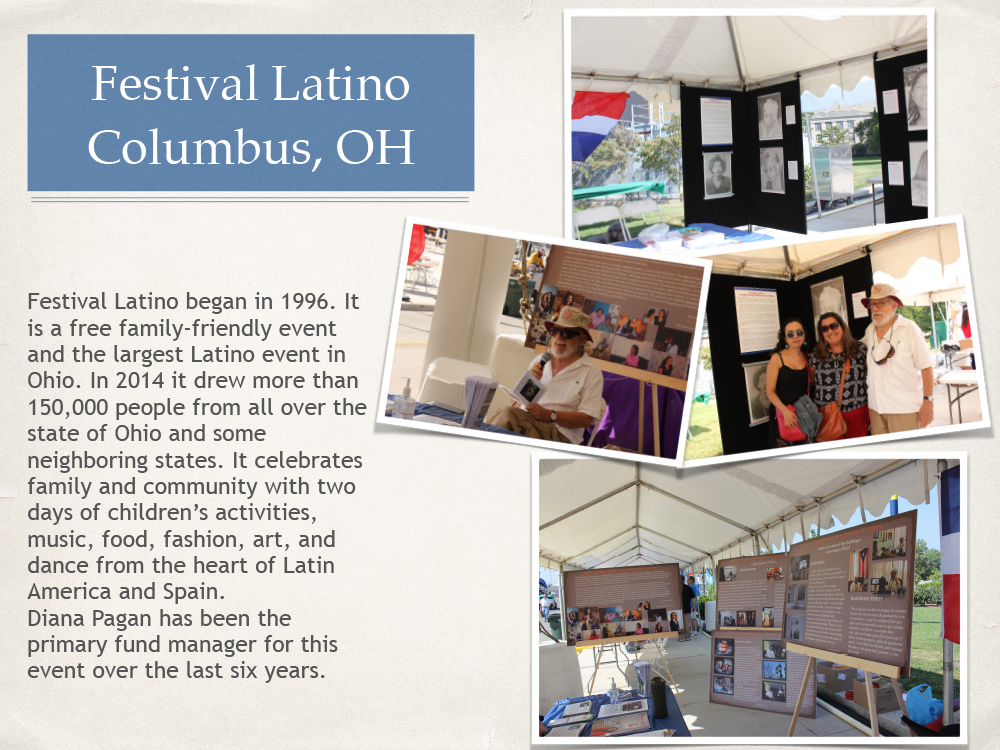1. Adaptación
Diana Pagán
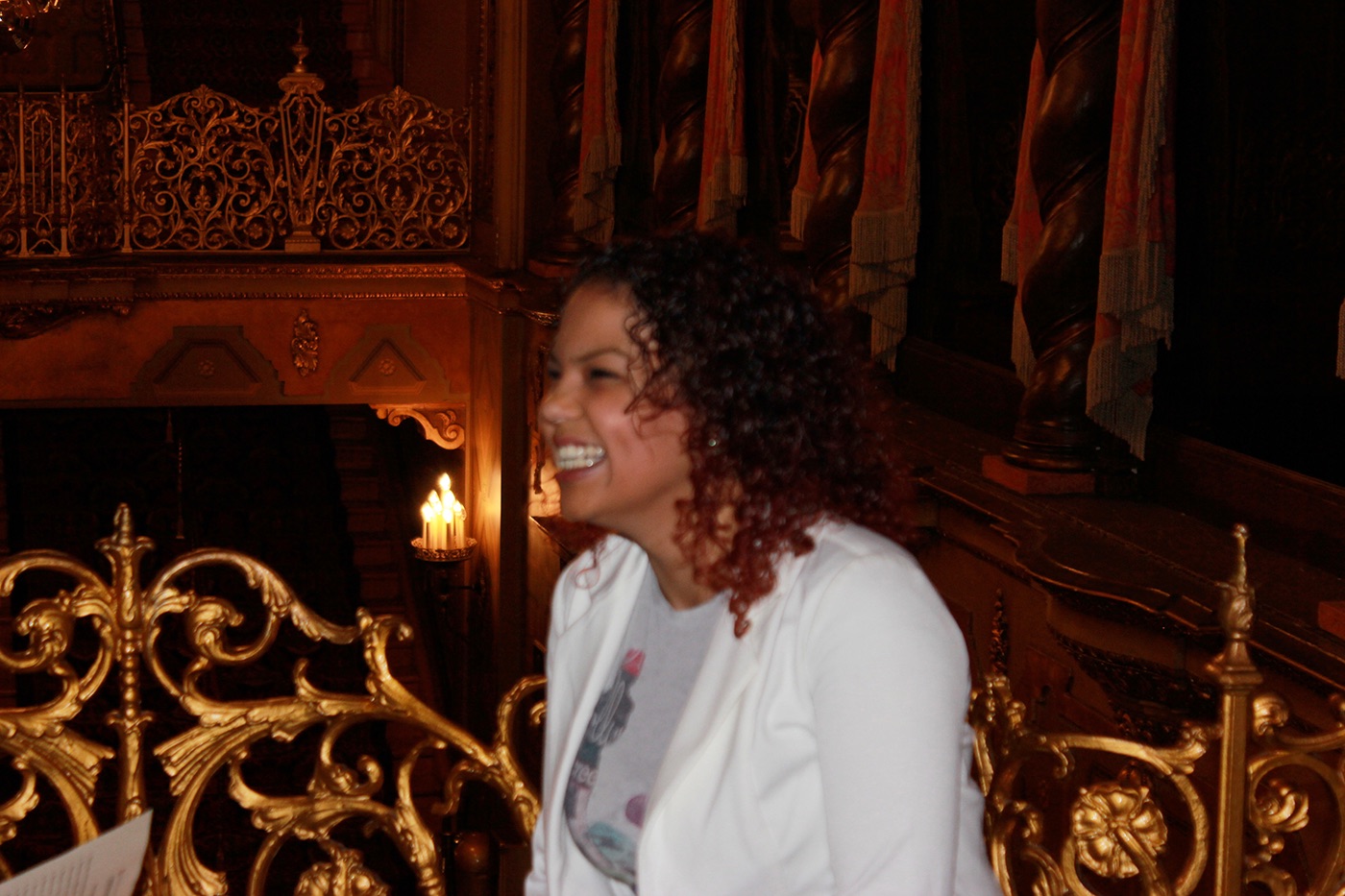
DP: I was born in raised in Chicago, Illinois in the Humboldt Park area. I lived there for about 11 years and then moved to Columbus immediately after that.
EF: Ok. So when did you move here? Do you remember what year?
DP: Um,1996. I was in sixth grade.
EF: What area of town did you live in when you first moved here?
DP: When we first moved to Columbus we lived on the west side. Specifically in the famous Lincoln Park West apartment complex, which I think has had like 15 name changes since then. When my family moved to Columbus Ohio, we were one of the very first Latino families in that neighborhood. We lived there for about a year, after, we moved to Dublin and pretty much spent, you know, a majority of time here until I graduated from high school.
Diana was interviewed at the beautiful Ohio Theater in Columbus, OH.
EF: What was your first impression of Columbus?
DP: ¡Ay, díos mio! Those were probably my first words. For me as a young Latina, you know, growing up in Chicago, Illinois in a very like close-knit family, um for me, the move here was a culture shock. Just going back to 1996, Columbus Ohio was a totally different… the people were different. There weren’t that many Latinos. You know, I felt like I was different. Like my hair. Girls used to always come up to me and be like “boing, boing, like your curls bounce.” And I was like, yeah, in Chicago everybody had hair like me. So for me it was a huge culture shock.
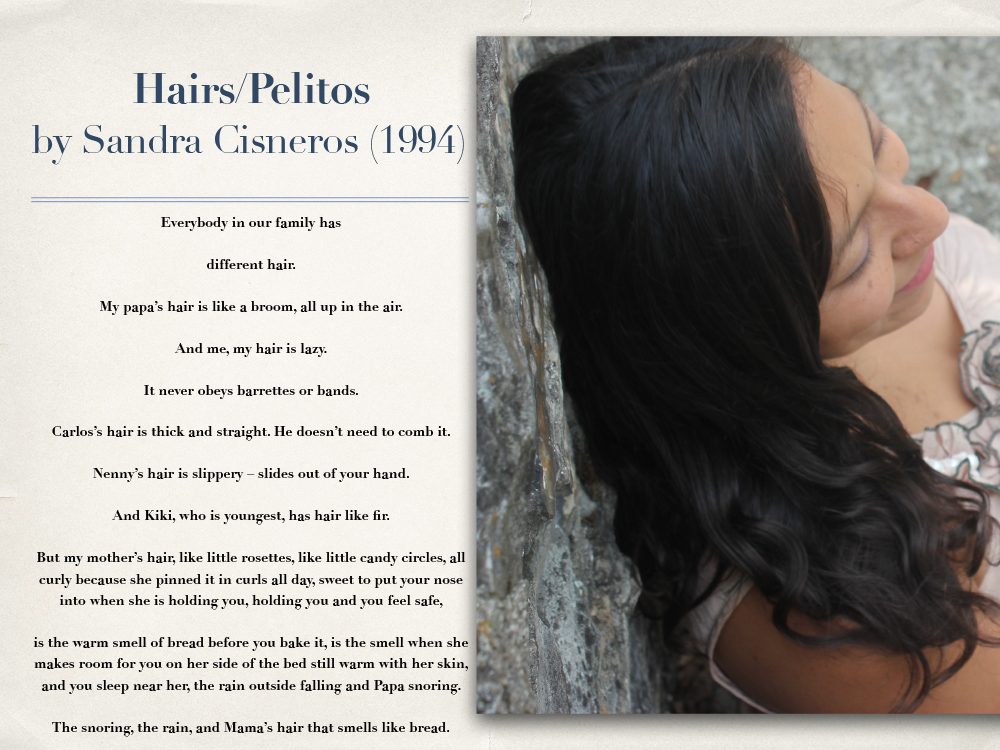
EF: What was your childhood like? You can compare it to Chicago or you can focus on your childhood here in Columbus.
DP: My family ALWAYS gathered at my abuela’s house. It was like sin duda, every year, like I mean every, every weekend the whole entire family would be at my grandmother’s house. My grandmother at the time worked in a factory packing candy. So I think of all the little kids in my generation like “Oh my god, like we gotta hit up the closet where abuela has her stash.” I remember just that there was kind of this camaraderie.
So, one of the most vivid memories at abuela’s house is that um you know, the women would all be in the kitchen making the rice and the beans and the meat. And just, having conversations. One of us is washing the dishes. Another one is drying. And then the men would be in the living room watching sports. And the smaller kids would be in one room playing around. And the older kids would be in the bedroom watching T.V. I just love that sense of family. And moving to Columbus um, that changed. Um ‘cause you know, all my family stayed back in Chicago. I mean, I used to spend a lot of time with my family, so coming to Columbus… that was hard. But mami made it a ritual to make sure that we were going back to Chicago literally on a monthly basis for the first two years that we moved here. Slowly, but surely, a lot of my family that actually lived in Chicago then is actually here now. I guess that makes the transition easier in all.
EF: Why did your mom decide to move here?
DP: My mom has always worked in HR, specifically in the hotel industry. And she used to be the general manager of Executive Plaza Hotel, which I know that hotel has been renamed now. She’s always wanted to start her own business. And so her and um two of her friends started a business here in Columbus: Resource Staffing Solutions. And basically, what they were doing was that they were recruiting Latino families from New York to get them to come to Columbus to um better their lives, you know, hopefully provide better opportunities for their children, um employment. And so uh the opportunity came. I was too young to say “mami ay, yo no quiero ir.” So we sold our house and packed a U-haul and came to Columbus Ohio.
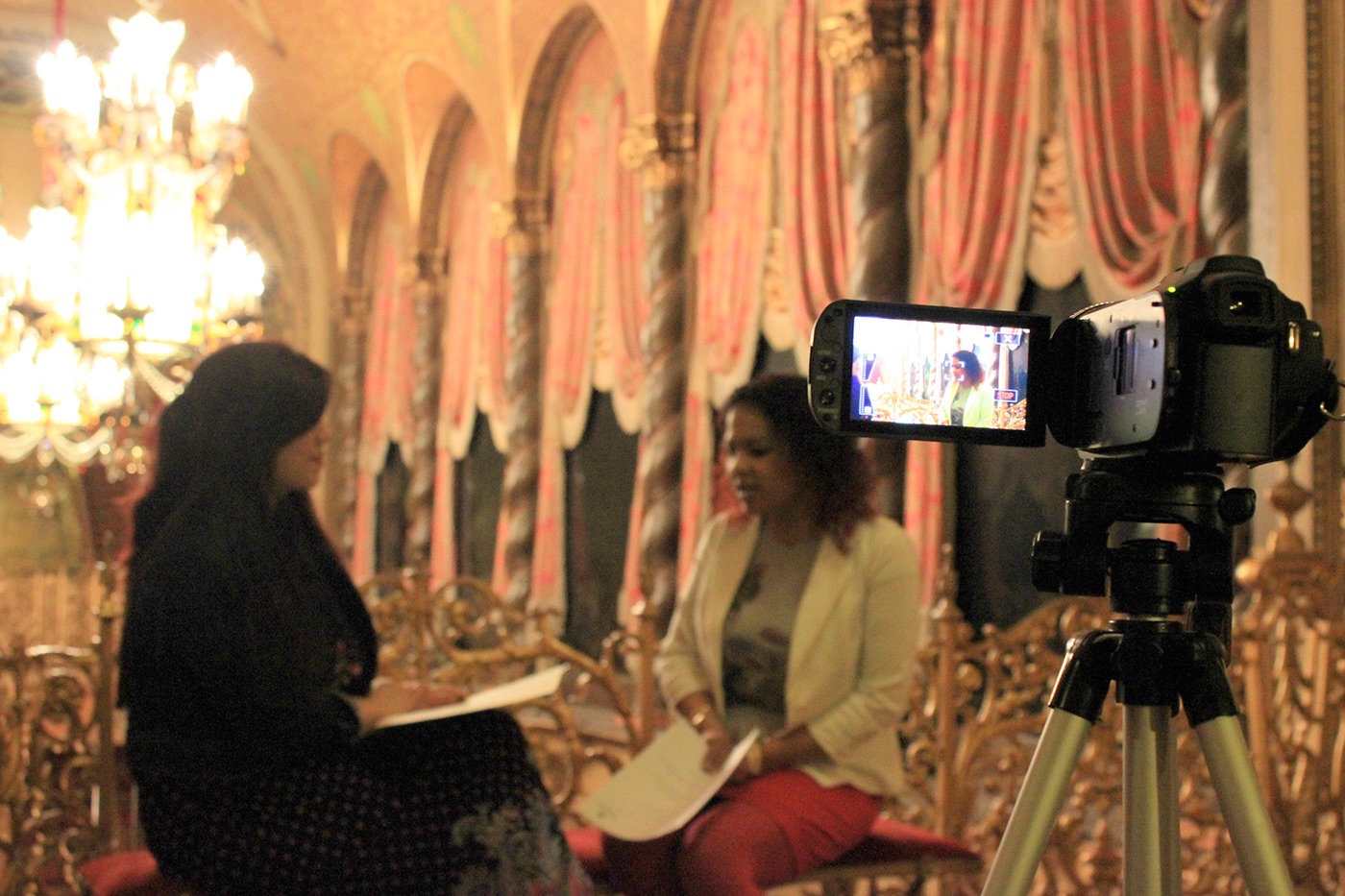
EF: What songs, jokes, or stories do you feel are part of your family? So you just told me about the kitchen and being in the kitchen. But what else, what else is home?
DP: I will definitely say “Bidi Bidi Bomb Bomb.” [Selena’s song was] an instrumental part of my childhood. Not too many people know this but I actually, along with two of my cousins, tried out to be um Selena in her movie. I wish I had pictures to show. But um, I remember after try-outs me and my cousins and, and my aunt went out to McDonald’s and we’re eating french fries and there’s like all these pictures that my cousins and I have about, um about this date. I also have a cousin, one of my cousins that actually did a performance to that song in the talent show in her school. I think that it just, it definitely shows like the creativity, I guess, that we have, and like the bond. And uh so I would definitely say that it’s, that it’s that.
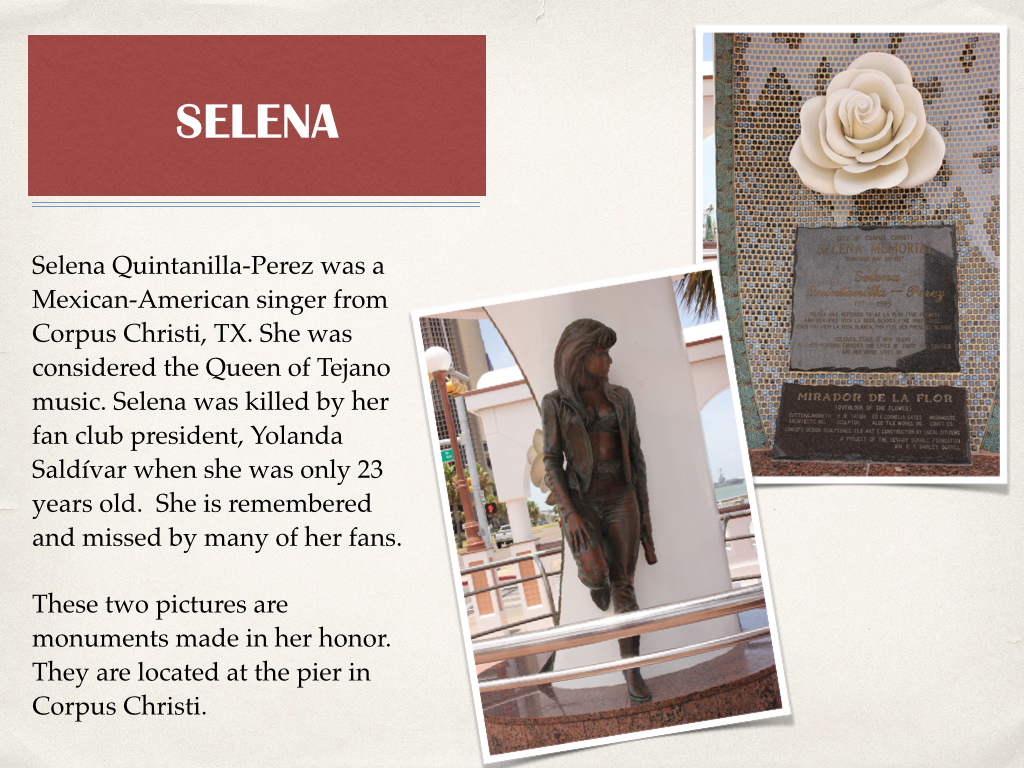
Listen to a portion of Selena’s song “Bidi Bidi Bom Bom” from the album, Selena Remembered
A joke? Um most recently, um there’s this whole thing with the chancleta. Um you say the word chancleta in my family and everyone will just like, just crack up.
EF: Well the chancleta has many meanings.
DP: It does! Um so ours actually has a positive one. We uh, we were basically like all the cousins were together. And it wasn’t for the best occasion. It was actually for… our family got together for a funeral. And to try to lift everyone’s spirits, we were trying, um you know just talk and remember the good times, and just silly things, jokes and things like that. We all started talking about…we all went down a list and wrote down everyone in our families’ names and kind of like a word that was associated with, with each person. And so in that, we started talking about the chancleta and we were like, “we should come up with a dance.” And so like there’s just this whole dance, joke of like ‘el baile de la chancleta, el baile de la chancleta.’ So whenever we hear anything about the chancleta it just brings back all those memories and it kind of helps, you know, re-live a sad moment with some happy memories.
EF: Is there anything else that you remember about those first years here in Columbus?
DP: Definitely, I remember back in those days I was ecstatic whenever I went anywhere and heard anyone speaking Spanish. Whether you looked Latino or not, I heard Spanish and I was like “¿Qué, quién? We don’t know you yet!” That was big. Columbus has now grown onto me. I’ve been here for almost, what 18 years now? Oh my god. But Chicago’s still my home. I’m still a city-girl at heart. It felt like a campo coming [here] from Humboldt Park which is, you know, very Puerto Rican dominant city or area in Chicago. It was weird for me to come here and be like, “ oh you guys don’t have like the big steel Puerto Rican flags on California Avenue.” And there’s not a Lily’s Record Shop. There weren’t, at that time, there weren’t lot of Latino businesses. I think I missed um a big part of my culture. There wasn’t anywhere where I could just go and um buy sancochos, si se me antojaba algo, or you know just you know buy arroz con gandules, con pernil or something like that. So I think a lot of those things were definitely missed; taking into consideration that I was exposed to all those things on a daily, and weekly basis.
EF: Yeah. Who’s the most important person in your life?
DP: My mom. Just saying that like, I dunno she, she makes me real emotional. But definitely, my mom. I’m a lot like my mom. I mean she… I feel like I owe myself to her. I said she’s always been in HR and so got me my first, like professional job. At that job is where I really learned the love for networking and the love of just like meeting and connecting with people. I think that knowing that my mom has instilled those values in me and that she, you know, kind of gave me this opportunity where I could basically go through any open door. I think that that’s what really got me to find that love for you know the journey that we have with each other. If you even think of you know how we met and, like, here we are. I just really love that my mom has you know shown me the value of hard work, of dedication, um family. You know growing up I remember Mami always working, ALWAYS working. And I was always like, “I, you know I don’t wanna, I don’t wanna work so hard. Or I don’t wanna you know have to maybe make some of those tough decisions that maybe she made growing up.” And so when I moved to Columbus and found out you can start working at the age of 14. I was like, “On my birthday when I turn 14, I’m gonna start looking for jobs.” And I did. And since I was 14 I’ve been working. I remember when I was in high school and I had to buy a Texas Instrument calculator, and I remember it cost like 144 dollars. And I was like, “I’m not asking Mami for that. I can buy it myself.” And I remember that being such a big moment for myself. Um ‘cause Mami always told me, you know, when I was growing up, I’d be lucky if I got a doll. It made me realize at an early age, that we can’t take things for granted. And I really wanted to be able to prove to my mom that, you know, I don’t have to ask you for what I need. You know, I can do that on my own. She’s my rock. She’s my strength. She’s the reason why I feel like I breathe…Definitely my mom.
EF: How old are your kids? You have two sons?
DP: Yeah. My oldest, Duncan Eric Nesbit III, he’s named after his dad. He will be six next month and he’s in kindergarten. And Antonio Alexander Nesbit is 18 months, so he’s not a baby anymore. That makes me sad.
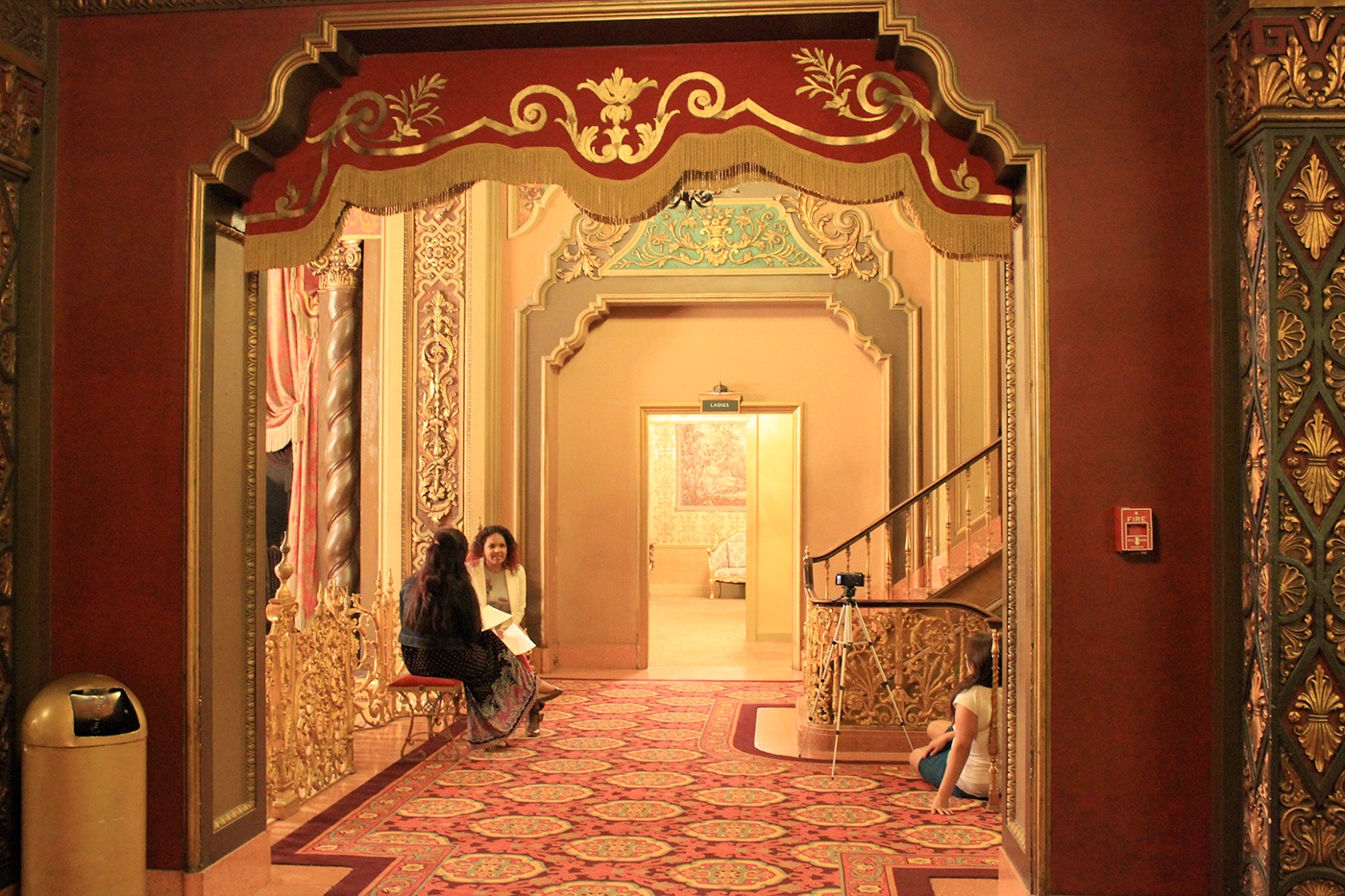
EF: What traditions, family traditions, are you trying to keep alive with them?
DP: One of the traditions that we’re, uh that we’re definitely keeping alive is on, on Christmas my family always opened up our gifts at like 12 o’clock and that’s something that I’m definitely keeping alive with my children. Along with my husband’s traditions. We allow them to open up some gifts at 12 o’clock and then the morning of Christmas day we’ll, you know, open up the rest of the gifts or whatnot.
Another tradition that, that we have, that, that we try to do, maybe not as, as we did, you know, growing up at Abuela’s house on a weekly basis, but just really making sure that we find that time like we are as a family, like, we’re getting together around food. You know, just to celebrate our culture and our family. And, to remember where we came from. I would say that those are, those are definitely things that we have tried to instill in our children. And of course, speaking Spanish. I will admit with my first child, I wasn’t on top of it as much. My husband is black and Mexican but when he was growing up his mom was learning English. And so in that process she kind of forgot to teach the boys Spanish. They didn’t really grow up too much with their Mexican culture. And so for me, I, I found it hard to always have to like translate. Cause then you feel like a broken record, you sound like a broken record. Oh, I just said that three times. But with Antonio like it’s definitely a lot easíer. My kids actually both just went to the Dominican Republic for the summer.
EF: Great. You work here at CAPA, right? What other jobs have you had here, in Columbus?
D: Um, not a very long list actually. My very first job um was at Fairmont. And it was a nursing home. And boy did I love that job. Like just working with, just working uh with, with the helpers and just having the conversations. You know, yeah. You know a lot of, a lot of people in nursing homes don’t really have relatives who come visit them and I really enjoyed having that, like I mean with them…Immediately after that, um I started working as a cashier at Meijer um and this was when I was in high school. I’ve also worked um selling cell phones.
I would say my professional career kicked off with the job that my mom got me. I was a bilingual pharmaceutical sales representative at Modern Medical… I worked with an amiga, her name is Nadie Boch and um she was like my Latina girlfriend that wasn’t Latina. And she, I remember one point we were like, “You know what? We’re not happy here. Why are we still here?” She went off and applied for jobs and I, I kind of stayed complacent, I guess. And um when she got her new job she reached out to me and she was like, “Diana you have to apply to this job.” And I was like, “uhhhh I’m not interested. I’m fine where I’m at. I get a good paycheck.” Like you know I’m, I’m comfortable. I was actually going to OSU at the time in the Delaware campus. And my job was literally across the street from campus. So it was perfect. I went to school from like 9-11:30, worked from 12 to 8 and had a class from 8, from 8-10 o’clock. So it was like perfect at that time, at that point of time in my life. And um so Nadia went and, and said, “Hey I haven’t seen that you applied to this job.” And I was just like, “I’m not going to apply to it.” And um one day I get a phone call from the executive director of the position and they were like, “We need you to apply to this position.” And I was like “wait, isn’t it supposed to work the other way around?” So because the executive director called me I was like okay sure I’ll submit my resume. Like that same day they were like, “So can you come in for an interview tomorrow?” That interview um opened my doors to the nonprofit world.
I worked at the Columbus Council of World Affairs for four years um as the office manager and as the community outreach person. I learned everything from databases to membership, um you know, what keeps people coming back to an event, what keeps people engaged. I learned a lot about networking, relationship building. Since then, I’ve never looked for a job. I’ve had the, the opportunity to be actually sponsored by people. And four and a half years into that job I was invited to lunch. And uh was you know, on our way out, um they were like, “so what do you think about a job um working as a development associate at the Women’s Fund Central Ohio” and I was like “man that’s like a tough call. Cause I really loved my job. But I was at the time I was really passionate about empowering women and girls. So I decided to take the job. I was at the women’s fund for about four and half years. Got to do and work with amazing people.
After that I, in my time there, was when I became a mom. And becoming a mom I was like, “You know what? Like I need to maybe focus a little bit more on my family and my kids.” So I took a little bit time off work. Did some fundraising like freelancing. And then someone called me up again and was like, “Hey you wanna do coffee?” “Sure!” So there’s a recurring theme here with my coffee and lunch. That conversation was about CAPA. And um I remember, I remember saying, “You know what like that’s down my alley. Cause I really wanted, want to use my skills working with the Latino community. So I’ve been, I’ve been with CAPA for about four and a half years. And love it. I mean um I get to coordinate the largest Latino festival in the state of Ohio. I’m proud of that. I, I really like it. You know going back to some memories as um, of my childhood. Um one of, um one of the things that I looked forward to on a yearly basís was going to the Puerto Rican festival in, in Humboldt Park. And I remember just always really going with my cousins. And it was like, you know, the place to be at. Having that as a fond memory of my childhood and um you know, being now the coordinator of the Latino festival in the city that I live in. Um I feel like you know, like it’s kind of gone full circle.
EF: Great. What does Ohio mean to you?
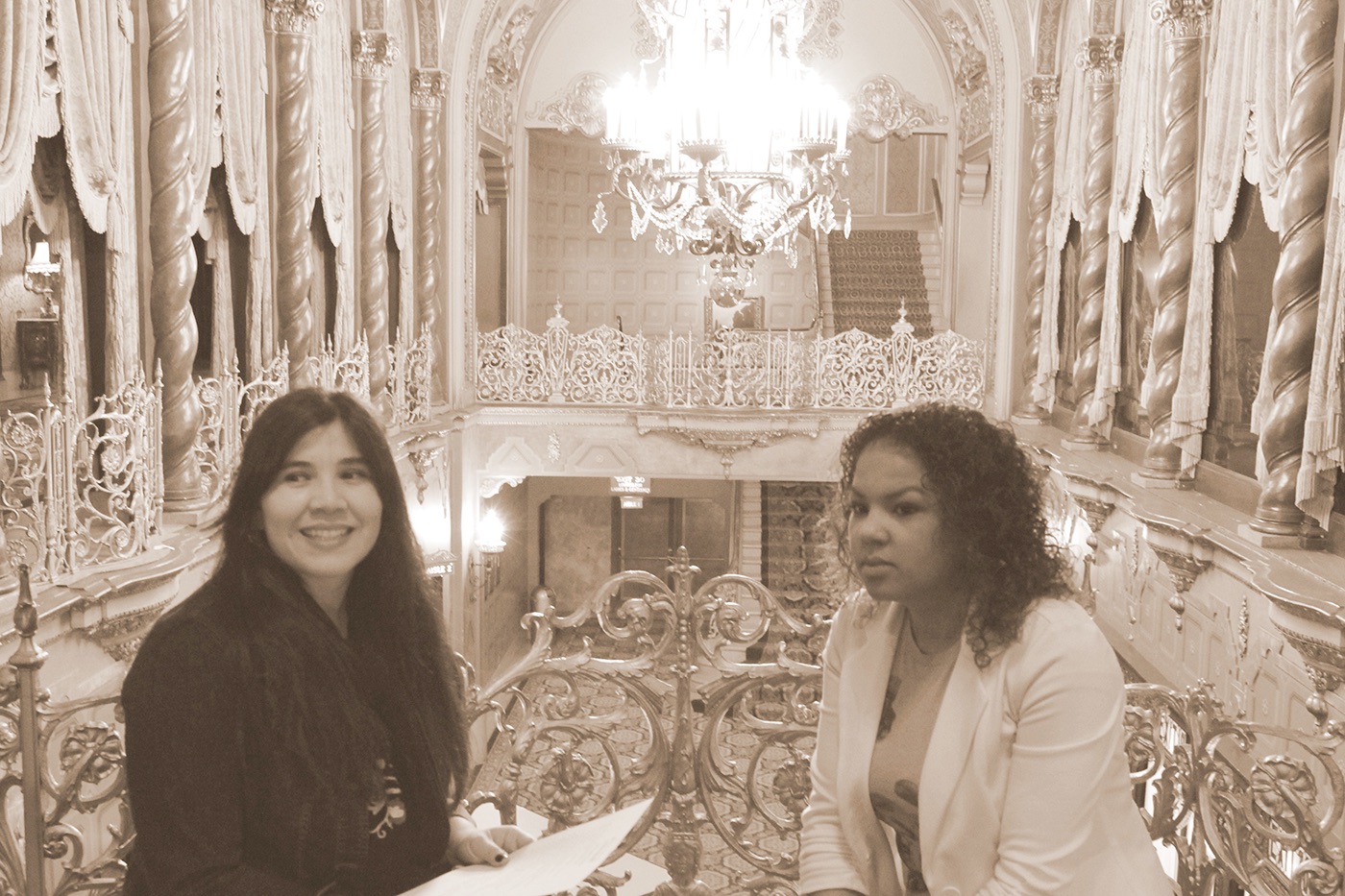
DP: Ohio. Opportunity. Growth. Journey. Friendships. Strong friendships. I really like the sense of community in Columbus. And the opportunity for growth here. I mean whether it’s economic, social, education, I think that there’s, I think that Columbus, Ohio has a lot to offer. I think especially as a young Latina, Ohio almost has so many opportunities that it’s like enough, like conquer the world. You have an idea, you know go for it. Um I, I think that’s what Ohio represents for me. It feels very inclusive.
EF: What was one of the most difficult times of living here?
DP: In the beginning, I would definitely say that like fitting in. Um, you know just going back to, I was you know eleven when I moved here. I was in the sixth grade. So like you know, you’re like in that tween phase. And uh you know coming here like I didn’t, you know, I didn’t have any friends. I had an accent. I mean I still have an accent but like you know, 18 years ago, I had a really strong accent. I came from a school that was like 99.9% Latino so coming, coming, to, to Columbus I mean honestly like I’ve, I’ve never seen so many Caucasian people at once. Like seriously.
EF: So you, I know you have young sons and um and this might not be the case where you’re, you’re telling the stories now but um maybe when you get together with your mom or something like that, what are some of the stories from your youth that you like to take, to tell the most from when you were little or a teen or something? Or remember, you know like la chancleta right? What are some of those stories that you like to tell?
DP: I know when I was growing up, um well not even growing up, when I was a baby, mommy always said, “Ay tú eras, tú eras mal criada, cuando tú eras, tú eras pequeña.” And I used to be like, “Really?” And um so there was a, I used to like when I got upset or mad when I was a baby, and this was like when I was one or two, I used to always like, you know, throw myself on the floor and conk my head on the floor. And so I have an 18 month old and um when he was about one like one, he started to do that. And so my mom was like, “Coje allí, that’s what you get.” Um, and so um, it’s just this, it takes me back to so many memories. I remember always having conversations with my best friend saying, “we’re not going to be like our moms”. My mom and her mom used to be like known for going to the stores and getting the little Estée Lauder sets because it’s a free gift if you purchase 25 dollars or more. And we just always be like, “we’re not going to be like them.” We’re so like them. And so all those things like they, it really just all goes back to you know…we really do end up being our moms. And our kids end up being us. And I don’t know if it’s a cultural thing or not but I mean it definitely happens. And it’s happening in my family. And I’m seeing it with my kids.
EF: So you mentioned that your son is sort of doing the things that you used to do when you were little. What are some of the fondest memories of your children? Uh I know they’re still young but what are some of those memories that you’re keeping and that you’re you know, thinking still, uh remembering, or, or wanting to keep alive in a way?
DP: I have a lot of recurring themes. Going back to the story about my hair and the boing and all that um. My oldest son um probably has had the most beautiful hair like ever. Not just because he’s my son but because he really does or did. So my husband’s father always thought that a man’s wealth was um dependent on how many sons he had and how long their hair was. And um, so when my son was born we were like, “We’re never cutting his hair.” So we didn’t, for a good like four and a half years. He has tight curls just like mine but a lot easier to manage and just nicer curls I guess. So we were actually growing his hair in honor of my husband’s dad who unfortunately passed away, so even with more meaning we’re like, “we’re definitely never cutting his hair.” But there was a day, it was Mother’s Day, my husband’s grandmother kept him overnight. When my husband went to go pick him up she was like, “here you go” and gave him a ziplock bag with four braids in it. I cried for nine days nonstop. Eventually I got over it because he, he’s a handsome kid. But when he sees pictures of himself from back, he’s like, “Mom really, really? Like you let my hair get that long?” and then you know we’re able to like retell him the story and the history and the reason why we did it. And he’s like, “Oh okay.” Um so now he sees his little brother. He, he also has, you know, the curly, the curly locks. I don’t know where they get it from. Um and so.
EF: Um if you were to give advice to new immigrants to Ohio, especially Latino immigrants, what would you tell them?
DP: Do your research. Get engaged with an organization, a cause, a nonprofit, that you feel passionate about. Do it con toda fuerza. But definitely do your research. And like make sure that you have a passion for what you’re, for what you’re wanting to get involved in. And don’t spread yourself too thin. I should take my own advice on that one. I think I have a very strategic reason in why I am very involved in the community. Sometimes I think, like “Oh my god I don’t even know how I do it.” Um but I, I can definitely say that I am passionate about everything that I am a part of.
EF: Is there anything else that you would like to add to this interview?
DP: I hope that, you know, people are a bit inspired by my story. If I inspire one person like I feel like I changed the world. Embrace your, your heritage and your culture. Don’t ever stop being who you are. Don’t ever let anyone tell you like, “You can’t do that. You shouldn’t do that. Like we tried that before, that’s not going to work.” Do you.
